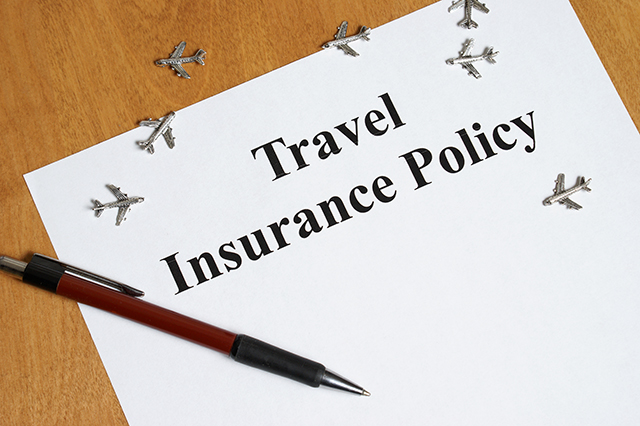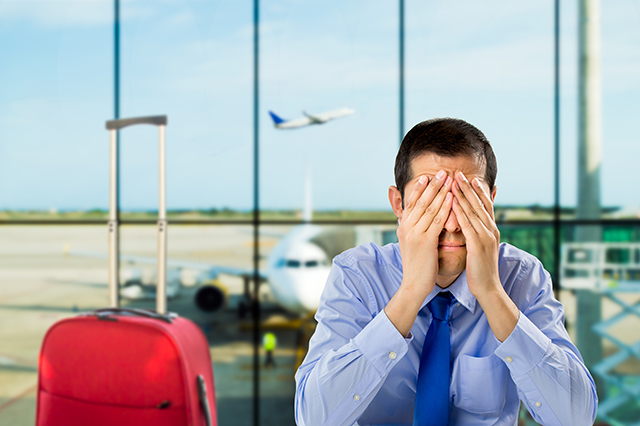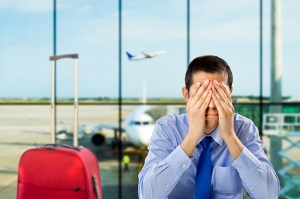It’s possible you’ve been abroad and back many times over your lifetime and have never required the financial safety net that is trip cancellation insurance. Congratulations! Like European travel expert Rick Steves, you’ve been lucky:
“I’ve skipped it many times, and my number has yet to come up,” he writes in a blog post titled “Do I Need Travel Insurance?”
But if you had a trip planned prior to the COVID-19 pandemic, you likely had to postpone or cancel and – if you didn’t have travel insurance – had to count it as a loss.
Steves believes it’s the most useful type of insurance: “It’s expensive to cancel or interrupt any prepaid travel, and for a fraction of the trip cost, you can alleviate the risk of losing money if something unforeseen gets in the way.”

How Does Trip Cancellation Insurance Work?
Trip cancellation insurance is often part of a larger travel insurance package that can include travel medical insurance and medical evacuation costs – and it can kick in even before your trip begins, if you need to cancel due to sickness, job loss or other circumstances beyond your control. As with all kinds of insurance, the coverage you get depends on the insurer and the exact type of travel insurance policy you purchase from the insurer.
Learn about AAA travel insurance partner Allianz Global Assistance.
Before we get to what it may cover, keep in mind these three trip cancellation insurance basics:
- Coverage is designed to protect you from unexpected situations, reimbursing you for nonrefundable, prepaid trip costs that are not refunded or reimbursed from the airline, hotel or other party.
- Coverage needs to be purchased before the trip – and before potential difficulties arise. For example, if you purchase trip cancellation after a hurricane warning is issued, the hurricane is at that point considered a known event and will not be covered.
- Unless you get “cancel for any reason” policy (the more expensive option), valid reasons for cancellation are set forth by the policy.
Get more information about how travel insurance helps to ease top traveler concerns (including pandemics).
What Does It Cover?
Policies vary widely, but trip cancellation insurance is generally intended to help protect you in the following kinds of scenarios:
- Sickness, injury, death – your own or your traveling companion’s – or the death or hospitalization of a close family member.
- Adverse weather that leads to flight cancellations, or a hurricane warning issued by the National Oceanic and Atmospheric Administration for your destination.
- Job loss, or your vacation time was revoked – or, if you’re in the military, a revocation of your military leave.
- An airline strike, or bankruptcy of your travel supplier.
- Inhabitability of your home or your destination due to fire or flooding.
- Terrorism, or some other mandatory evacuation.
What Doesn’t It Cover?
All the above items have their limitations. These aren’t dastardly “fine print” asterisks geared to trip you up as a customer; for the most part, they’re reasonable terms and conditions, such as not waiting for a hurricane to be announced before buying trip cancellation insurance.
For example, the “death or hospitalization of a close family member” may not cover a close family friend or distant relative. A legal divorce or separation may be a covered reason, but breaking up with a fiance is probably not. The terrorism clause may not soothe your fears. Perhaps you’d like to cancel altogether, but the policy states the event had to have occurred within 30 days of your travel dates and be directly included on your itinerary.
Another example: Adverse weather and flight cancellations may be covered, but leaving the airport in a huff after an annoying delay won’t be.
The Bottom Line
Trip cancellation insurance is intended to make you “whole” again in a covered event, so the amount you get back is the prepaid portion you don’t receive from the airline, travel company or tour operator. As with all travel insurance policies, you should read it carefully to see what the terms and conditions are.
- Be especially careful regarding preexisting conditions. These are not only the major illnesses you’re aware of, but can also include something as basic as the flu. Time is of the essence; most companies will require a physician statement form.
- Keep all receipts – all of them – from the moment you plan your trip to the end. They’ll be required should you submit a claim. Documentation may include anything from credit card receipts and original unused tickets to explanations of diagnosis, vacation rental contracts, and documentations of which funds have already been reimbursed by other suppliers.
Have you ever had to use trip cancellation insurance? What was the reason and how did having this type of travel insurance help you? Feel free to share your tips and insights in the comments section below.
Look into trip cancellation insurance and other travel policies for your next vacation at AAA.com/TravelInsurance.
6 Thoughts on “Trip Cancellation Insurance FAQs”
Leave A Comment
Comments are subject to moderation and may or may not be published at the editor’s discretion. Only comments that are relevant to the article and add value to the Your AAA community will be considered. Comments may be edited for clarity and length.















Can I buy cruise trip cancellation insurance through AAA? I’m a member
Hi Sharon!
I’ve forwarded your question to our Travel team, and a Travel advisor should be reaching out to you shortly.
Thanks for reading!
-Dana L.
What was the answer to Sharon’s question?
Hi Walter, yes, AAA offers insurance on all of our trips. A travel advisor would be happy to assist you and go over the different options. Please click hereto set up an appointment.
I am interested in the trip insurance covered under my AAA membership and information about insurance coverage for loss of days due to hurricane conditions that might cause loss of days regarding rental property. I have been a AAA member since 2002 (#241017400 4). Any information would be appreciated.
Hi Dianne,
Thanks for reading! I’ve forwarded your request to our Travel department, and a Travel advisor should be reaching out to you shortly.
Take care!
-Dana L.